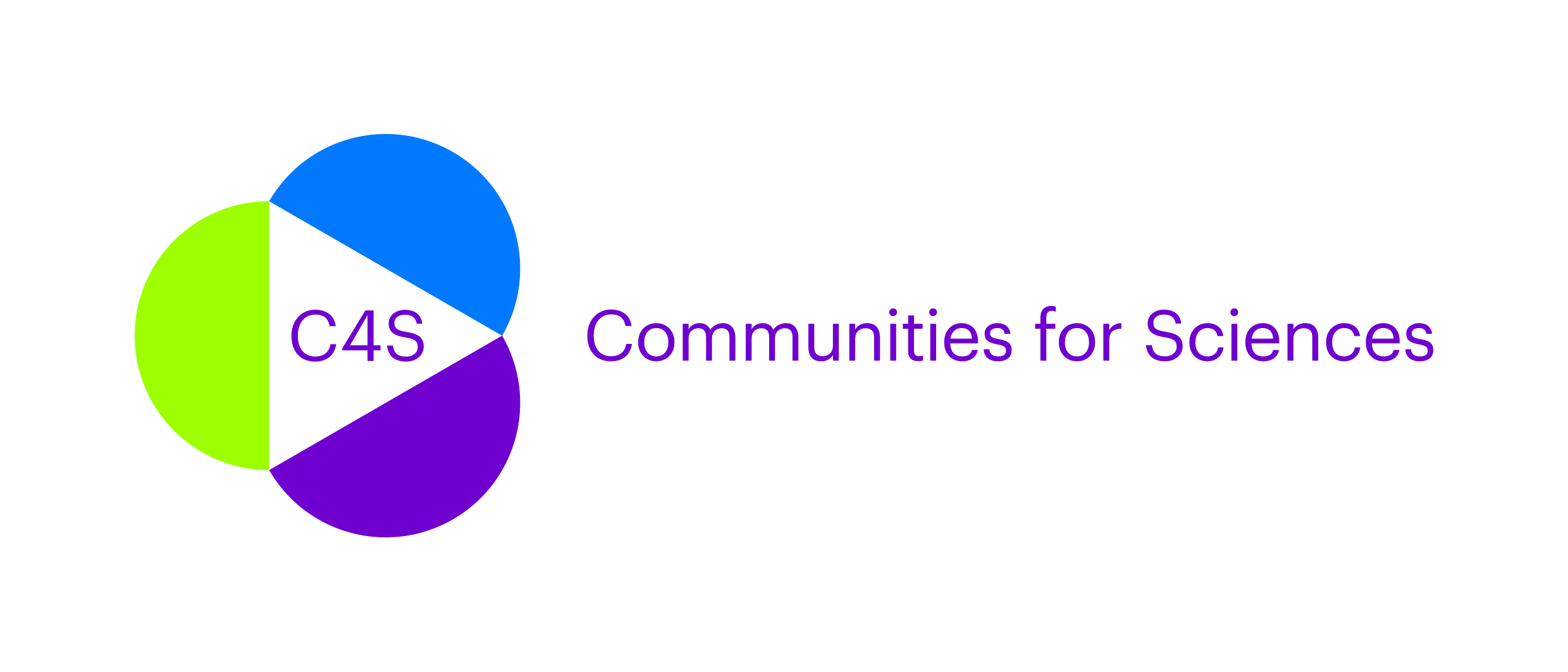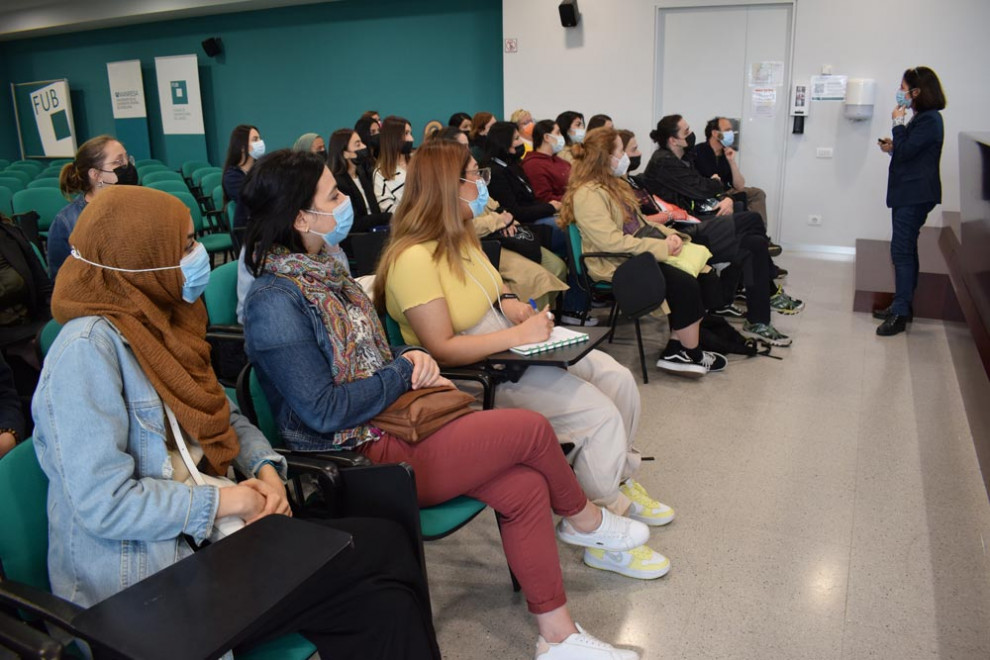
by Àngels Fusté | abr. 28, 2022 | General
A group of 29 people, comprising 26 students of the bachelor’s degree in Early Childhood Education and 3 teachers from the Erasmushogeschool Brussel are visiting UManresa to learn about the experience of the Faculty of Social Sciences of the Manresa campus of the UVic-UCC in the field of scientific education in early educational stages. The group of students and teachers are interested in learning about the different initiatives promoted by UManresa regarding both the creation of facilities dedicated to science as well as STEM activities in general. In addition to visiting UManresa’s Lab 0_6 and the new Upetita nursery school in the new FUB4 – UManresa Education building, future teachers will take advantage of their stay in Catalonia to find out about other experiences in this field, such as kindergartens, unique schools and the Science Nest of the Natural Sciences Museum of Barcelona, among others.
Apart from the interest the students have in discovering UManresa’s experience in scientific education at an early age, the visit also forms part of the institutional relationship between the Manresa campus and the Belgian university. The objective of the two institutions is for this type of visit to be carried out every year, so that a group of Belgian students can visit Manresa and that UManresa students can also travel to Brussels.
Upon arrival at UManresa, accompanied by the teacher of the Degree in Early Childhood Education, Gabriel Lemkow Tobias, the group was received in the Assembly Hall of the main building by Sílvia Mas Sañé, Dean of the Faculty of Social Sciences of Manresa and vice-rector of the Manresa campus of the UVic-UCC. The group has also participated in a meeting with students of the degree in Early Childhood Education of UManresa.
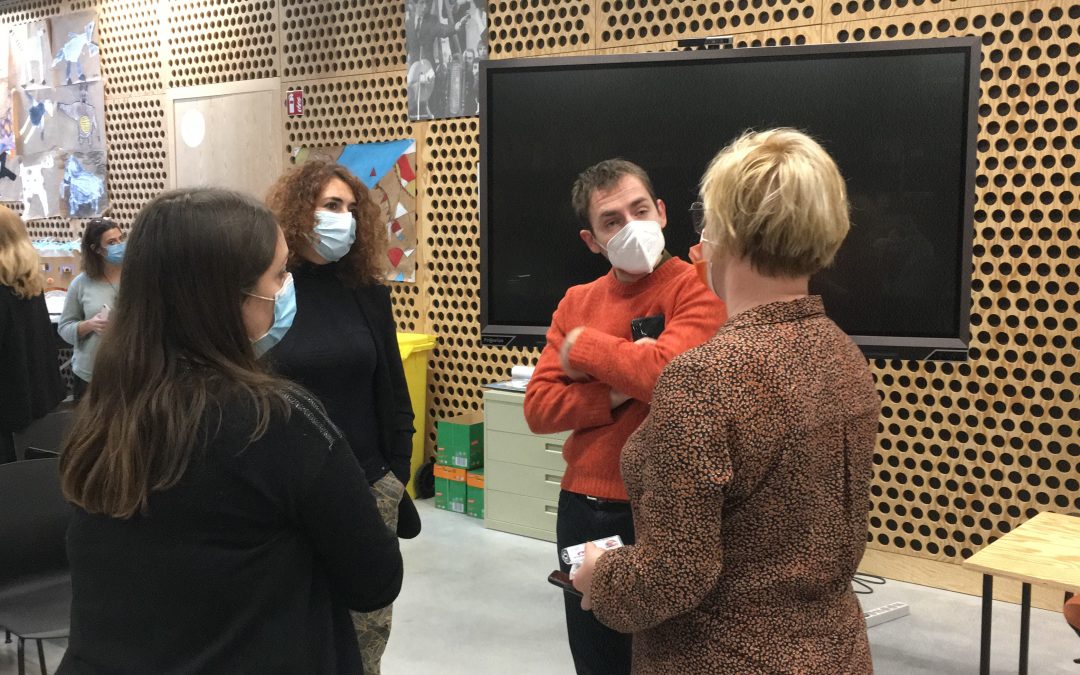
by Àngels Fusté | nov. 23, 2021 | General
The launch of the “Community Living Labs” focused much of the work of the group of the Communities for Sciences (C4S) – Towards Promoting an Inclusive Approach in Science Education” project researchers during the General Assembly of its consortium, held in Brussels on 17th and 18th November 2021. Community living labs are pilot tests that different project organizations promote in their local environment with the aim of using science as an integrative tool for people from communities at risk of vulnerability. Participants took advantage of the international meeting to agree on issues such as tools for collecting data from research fieldwork, compliance with ethical and legal requirements, communication of results, the real impact of inclusive science initiatives at the local level, critical self-questioning, and the review of one’s own practices and institutional roles to consistently promote the values of inclusion or coordination between different initiatives.
The Kanal campus of the ErasmusHogeschool Brussels hosted the assembly, which was held in the space of the “Wonderlab”, a science laboratory of the Belgian university specifically designed for the training of future teachers and educators in the teaching of science in the early ages. This is a facility like that managed by other institutions involved in the project, such as Lab 0_6, located on the Manresa campus of UVic-UCC, the Giocheria in the Italian municipality of Sesto San Giovanni or Galileo Progetti Kft.
The science spaces managed by the entities participating in the C4S share the desire to encourage a positive experience of science among children aged 0 to 16 and to entrust them with the habit of asking questions about the environment, raise hypotheses to answer them and test them from direct experimentation with materials and natural phenomena. In all cases, they go beyond strictly academic work and carry out activities specifically aimed at groups of schoolchildren and, in some cases, also children accompanied by their families, in a balanced combination of research, university teaching and pedagogical practice.
The C4S project allows these science laboratories, linked or not to university institutions, to consolidate their role as spaces for research on inclusive science education. In addition, the collaboration within the framework of the European Horizon 2020 program allows them to generate positive synergies with universities that train teachers and educators and/or that have research groups in Education in different European countries. It is hoped that this joint work will lead to conclusions and guidelines for a more inclusive science education to be incorporated both into an academic plan by universities and, from an organizational and strategic point of view, by the technical and political leaders of the public authorities. It is also a goal of the project to mobilize communities at risk of being vulnerable so that they can actively participate, while making visible their contribution to the scientific community.
In October 2020, C4S began its work and is expected to last until September 2023. During the first months, it has organized meetings, workshops, and online training days, both aimed at its members and open to educators interested in inclusive science education as well as interviews with experts of diverse profiles in science and opinion articles or analysis for different media. He has also carried out a thorough review of the scientific literature and of existing children’s books on the subject, as a prelude to local experiences or Community Living Labs that should become the groundwork for the fieldwork of shared research.
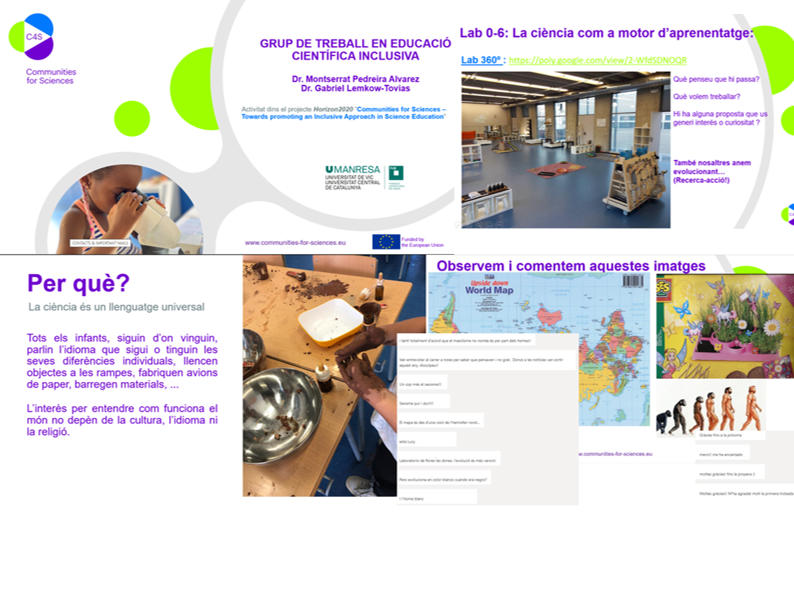
by Àngels Fusté | nov. 12, 2020 | General
The C4S Manresa-HUB had our first online meeting of the Working Group on Inclusive Science Education on 11st November 2020. It was addressed to teachers and educators. All the participants enjoyed very much this first session. The next one will be in January 2021 and, given the high number of participants, it will be splitted into 2 smaller groups to allow more proximity and participation. Educators from Manresa’s surrounding territory and also from other parts of Catalonia took part in this event.
More information about this Working Group on Inclusive Science Education here (in Catalan).
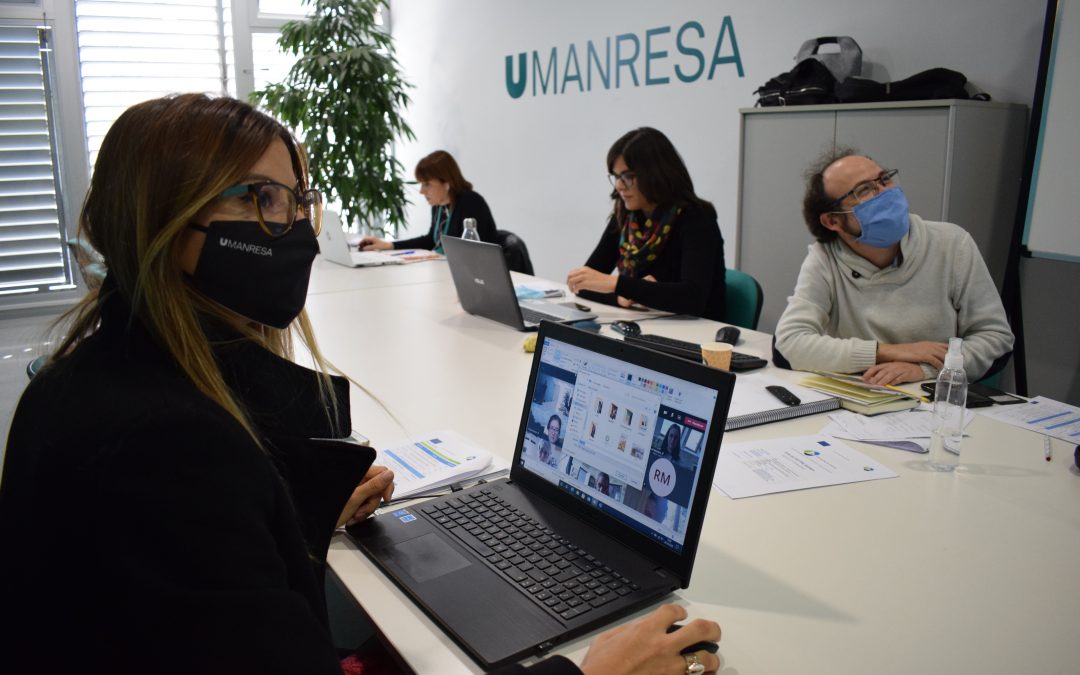
by Àngels Fusté | nov. 2, 2020 | General
About thirty people took part on 29th and 30th October 2020 in the first online meeting of the “Communities for Sciences – Towards project promoting an inclusive approach in science education” (C4S) project, as a part of the Horizon 2020 program. The session was held under the coordination of UManresa and was attended by the eleven institutions involved in the C4S consortium, with a presence in nine cities from eight European countries and their surroundings: Milan, Brussels, Manresa, Vic, Vienna, Budapest, Sofia, Lund and Berlin.
The participants were welcomed by the Vice-rector of Manresa Campus of UVic-UCC, Sílvia Mas, who showed her enthusiasm for the university’s challenge of promoting a shared, exciting and participatory project led by the Fundació Universitària del Bages (Manresa campus of University of Vic – Central University of Catalonia). The director of the degree in Early Childhood Education at the Faculty of Social Sciences, Montserrat Pedreira, and the project’s coordinators, Lluïsa Sort and Gabriel Lemkow, also spoke on behalf of the Manresa campus of University of Vic – Central University of Catalonia.
The C4S project, which is the first European project participated by the two campuses of the UVic-UCC (Manresa campus of UVic-UCC and Vic campus of UVic-UCC, both from Catalonia-Spain), is led by Fundació Universitària del Bages and involves the IB University of Applied Health and Social Science (Germany), Galileo Progetti (Hungary), Università Degli Studi Di Milano-Biccocca (Italy), Board of Education for Vienna, European Office (Austria), Municipality of Sesto San Giovanni – Socio-Educational Sector – Giocheria Laboratori (Italy), Erasmus Brussel University of Applied Sciences and Arts (Belgium), Wirtschaftsuniversitat Wien (Austria), Lunds Universitet (Sweden) and New Bulgarian University (Bulgary).
C4S is a three-year Horizon 2020 European project that stands for inclusive Science education with a total budget of 1,1M€. The Communities for Sciences has two different lines of development: on the one hand, it will conduct fieldwork activities with vulnerable communities and, on the other hand, it will use the data collected in the fieldwork to do research and produce knowledge to share with the scientific community.
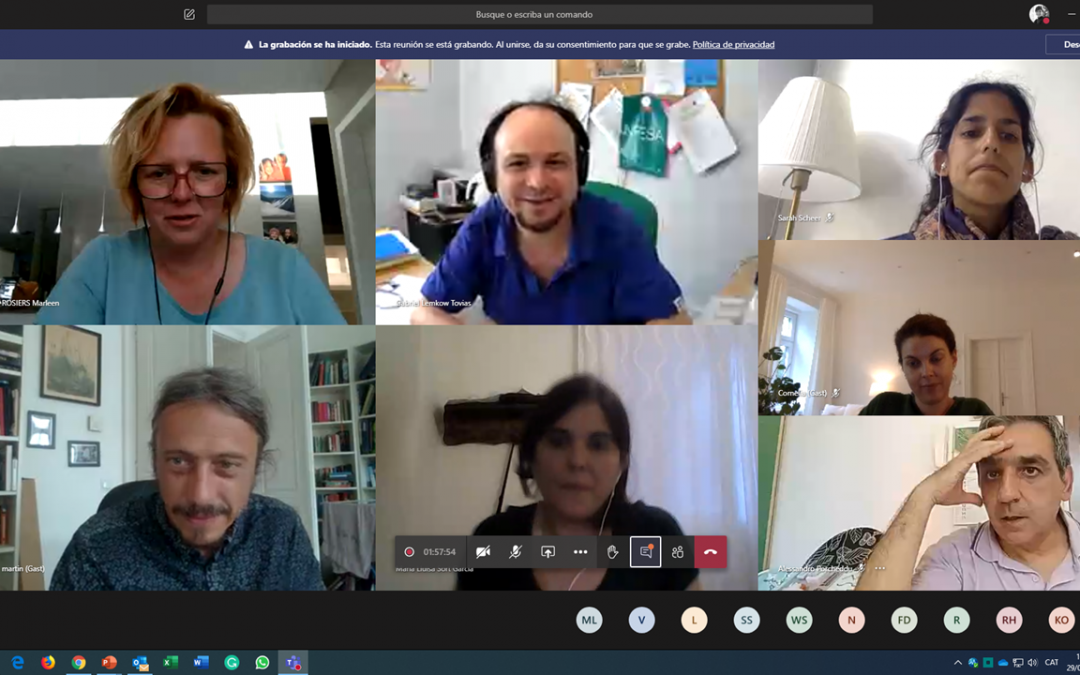
by Àngels Fusté | jul. 23, 2020 | General
The eleven partners involved in the Communities for Sciences (C4S) project celebrated a warm-up meeting on 29th June 2020 to prepare the project’s launching that is foreseen for the 1st October 2020. Each institution presented the work package that is responsible for: the aims, the planned tasks and the criteria to develop it. The meeting took place online and it allowed all the people involved in the project to get to know one to each other.
C4S is a Horizon 2020 European project that stands for inclusive Science education. Its consortium is integrated by Fundació Universitària del Bages (Manresa campus of UVic-UCC) and Vic campus of UVic-UCC (both from Catalonia-Spain), IB University of Applied Health and Social Science (Germany), Galileo Progetti (Hungary), Universita’Degli Studi Di Milano-Biccocca (Italy), Board of Education for Vienna, European Office (Austria), Municipality of Sesto San Giovanni – Socio Educational Sector – GiocheriaLaboratori (Italy), Erasmus Brussel University of Applied Sciences and Arts (Belgium), Wirtschaftsuniversitat Wien (Austria), Lunds Universitet (Sweden) and New Bulgarian University (Bulgaria).

